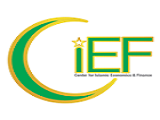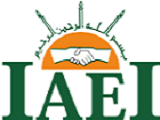Covid-19 Pandemic Moderating The Influence of Competence, Work Motivation and Entrepreneurship Orientation on Business Performance and Sharia Perspective
Abstract
The purpose of the article to analyze and empirically provethat the COVID-19 pandemic moderates the effect of competence, work motivation, and entrepreneurial orientation towards the business performance of SMEs. This study applies an explanatory approach to explain the causal relationship between variables through the hypothesis testing. Research data was collected by utilizing a questionnaire distributed to 130 SMEs and configured in 44 center groups in the city of Surabaya. Data analysis was conducted by Partial Least Square (PLS) approach.” Theresearch finding indicates that the COVID-19 pandemic as a moderating variable of the influence between variables. However, it turns out that not all the relationships regarding the COVID-19 pandemic are significant or strengthening.The empirical findings from the results of this study indicate that the COVID-19 pandemic has had a significant effect on competency, entrepreneurial orientation and business performance, as well as demonstrating the effect of entrepreneurial orientation on business performance.As for the effect of work motivation on entrepreneurial orientation and business performancehas an insignificant effect
Keywords
Full Text:
XMLReferences
Arifin, Muhammad. 2015. “The Influence of Competence, Motivation, and Organisational Culture to High School Teacher Job Satisfaction and Performance.” International Education Studies 8(1):38–45. doi: 10.5539/ies.v8n1p38.
As’ad, Moh. 2012. Psikologi Industri. ke empat. Yogyakarta: Liberty.
Baldoni, John. 2011. Motivation, Secrets of Great Leaders. New York: McGraw-Hill.
Barney, Jay B. 1991. “Firm Resources and Sustained Competitive Advantage.” Journal of Management 17(1):99-120.
Barney, Jay B. 2001. “Is The Resource Base View a Useful Perspective For Startegic Management Research? Yes.” The Academy of Management Review26(1):41–56.
Clapham, Ronald. 1991. Pengusaha Kecil Dan Menengah Di Asia Tenggara. Jakarta: LP3ES.
Covin, Jeffrey G., and Dennis P. Slevin. 2017. “A Conceptual Model of Entrepreneurship as Firm Behavior:” Entrepreneurship Theory and Practice 16(1):7–26. doi: 10.1177/104225879101600102.
Cumbie, Barry A. 2007. “The Essential Components of Disaster Recovery Methods: A Delphi Study among Small Businesses.” in Association for Information Systems - 13th Americas Conference on Information Systems, AMCIS 2007: Reaching New Heights.
Darsono, Nurdasila. 2015. Orientasi Kewirausaan & Kinerja Bisnis. Banda Aceh: Syiah Kuala University Press Darussalam.
Day, John, Paul Reynolds, and Geoff Lancaster. 2006. “Entrepreneurship and the Small to Medium-Sized Enterprise: A Divergent/Convergent Paradox in Thinking Patterns between Advisers and SME Owner-Managers.” Management Decision 44(5):581–97. doi: 10.1108/00251740610668851.
Dollinger, Marc J. 2008. Entrepreneurship : Strategies and Resources. 4th ed. Boston: Richard D Irwin Publishing.
Fahmi, Irham; 2014. Perilaku Organisasi : Teori, Aplikasi, Dan Kasus. Bandung: Alfabeta.
Grant, Robert M. 1991. “The Resource-Based Theory of Competitive Advantage: Implications for Strategy Formulation:” Http://Dx.Doi.Org/10.2307/41166664 33(3):114–35. doi: 10.2307/41166664.
Grant, Robert M. 1999. Analisis Strategi Kontemporer : Konsep, Teknik, Aplikasi = Contemporary Strategy Analysis : Concept, Techniques, Applications. edited by T. Sihombing and Y. Sumiharti. Jakarta: Erlangga.
Grant, Robert M. 2001. Contemporary Strategy Analysis: Text and Cases. 7th Editio. John Wiley and Sons Ltd.
Greenberg, Jerald, and Robert A. Baron. 2010. Behavior in Organizations. New Jersey: Prentice Hall.
Greenberger, David B., and Donald L. Sexton. 1988. “An Interactive Model of New Venture Initiation.” Journal of Small Business Management 26(3):1–7.
Helfert, Erich A. 1996. Techniques of Financial Analysis. 5th ed. Jakarta: Erlangga.
Heller, Robert. 2011. Motivating People. London: Dorling Kindersley.
Hisrich, Robert D., Micahel P. Peters, and Dean A. Sepherd. 2017. Enterprenuership. Vol. 10. New York: Mc Graw Hill.
Isa, Muzakar. 2012. “Analisis Kompetensi Kewirausahaan, Orientasi Kewirausahaan, Dan Kinerja Industri Mebel.” Benefit: Jurnal Manajemen Dan Bisnis 15(1):172–85. doi: 10.23917/BENEFIT.V15I1.1327.
Kasali, Rhenald. 2010. Modul Kewirausahaan. Bandung: Hikmah (PT Mizan Publika).
Kato, Tsuguhiko, Takashi Yorifuji, Michiyo Yamakawa, Sachiko Inoue, Keiko Saito, Hiroyuki Doi, and Ichiro Kawachi. 2015. “Association of Breast Feeding with Early Childhood Dental Caries: Japanese Population-Based Study.” BMJ Open 5(3):e006982. doi: 10.1136/bmjopen-2014-006982.
Kementerian Koperasi dan Usaha Kecil dan Menengah. 2018. “Kemenkopukm.Go.Id.” Retrieved August 28, 2018 (https://www.kemenkopukm.go.id/data-umkm).
Kreitner, Robert, and Angelo Kinicki. 2010. Organizational Behavior. New York: McGraw-Hill Companies, Inc.
Lambing, Peggy A., and Charles R. Kuehl. 2003. Enterpreunership. New Jersey: Prentice Hall.
Lestari, Susi. 2009. “Pengembangan Desa Wisata Dalam Rangka Pemberdayaan Masyarakat (Studi Di Desa Wisata Kembang Arum Sleman).” Laporan Penelitian, Universitas Islam Negeri Sunan Kalijaga Yogyakarta.
Lotunani, Alamsyah, M. S. Idrus, Eka Afnan, and Margono Setiawan. 2014. “The Effect of Competence on Commitment, Performance and Satisfaction with Reward as a Moderating Variable (A Study on Designing Work Plans in Kendari City Government, Southeast Sulawesi).” International Journal of Business and Management Invention 3(2):18–25.
Lumpkin, G. T., and Gregory G. Dess. 1996. “Clarifying the Entrepreneurial Orientation Construct and Linking It to Performance.” The Academy of Management Review 21(1):135. doi: 10.2307/258632.
Mangkunegara, Anwar Prabu. 2008. Manajemen Sumber Daya Manusia Perusahaan. Bandung: PT REMAJA ROSDAKARYA.
Mathis, Robert L., and John H. Jackson. 2007. Human Resource Management. Jakarta: Salemba Empat.
Michael, Armstrong, and Angela Baron. 2010. Performance Management. London: Institute of Personnel and Development.
Munizu, Musran. 2010. “Pengaruh Faktor-Faktor Eksternal Dan Internal Terhadap Kinerja Usaha Mikro Dan Kecil (UMK) Di Sulawesi Selatan | Jurnal Manajemen Dan Kewirausahaan.” Jurnal Manajemen Dan Kewirausahaan 12(1).
Naffziger, Douglas W., Jeffrey S. Hornsby, and Donald F. Kuratko. 1994. “A Proposed Research Model of Entrepreneurial Motivation.” Entrepreneurship Theory and Practice 18(3):29–42. doi: 10.1177/104225879401800303.
Ng, Hee Song, and Daisy Mui Hung Kee. 2013. “Effect of Entrepreneurial Competencies on Firm Performance under the Influence of Organizational Culture.” Life Science Journal 10(4):2459–66.
Penrose, Edith Tilton. 1959. The Theory of the Growth of the Firm. New York: John Wiley & Sons.
Porter, Michael E. 1990. Competitive Strategy. New York: The Free Press.
Purwanto, Heri, and M. Trihudiyatmanto. 2018. “Pengaruh Intensi Berwirausaha, Orientasi Kewirausahaan Terhadap Kinerja Usaha Dengan Motivasi Sebagai Variabel Intervening Pada Sentra UMKM Carica Di Wonosobo.” Journal of Economic, Management, Accounting and Technology 1(1):42–52. doi: 10.32500/JEMATECH.V1I1.211.
Ramanujam, Vasudevan, and P. Varadarajan. 1989. “Research on Corporate Diversification: A Synthesis.” Strategic Management Journal 10(6):523–51.
Robbins, Stephen. 2003. Organisational Behavior. 9th ed. California: Prentice Hall.
Robbins, Stephen P., and Timothy A. Judge. 2008. Perilaku Organisasi (Organizational Behavior). Jakarta: Salemba Empat.
Ruiz Estrada, Mario Arturo, Evangelos Koutronas, and Minsoo Lee. 2020. “Stagpression: The Economic and Financial Impact of COVID-19 Pandemic.” Contemporary Economics 15(1):19–33. doi: 10.2139/SSRN.3593144.
Rumelt, Richard P. 1984. “Toward a Strategic Theory of the Firm.” Competitive Strategic Management 26(3):556–570.
Saiman;, Leonardus. 2009. KEWIRAUSAHAAN : Teori. Praktik, Dan Kasus-Kasus. Jakarta: Salemba Empat.
Sansa, Nuhu A. 2020. “The Impact of the COVID-19 on the Financial Markets: Evidence from China and USA.” Electronic Research Journal of Social Sciences and Humanities 2(II). doi: 10.2139/SSRN.3567901.
Sloma, Richard S. 1980. How to Measure Managerial Performance. New York: Mac Millan Publishing Co. Inc.
Smith, Wilhelmina, and Tendai Chimucheka. 2014. “Entrepreneurship, Economic Growth and Entrepreneurship Theories.” Mediterranean Journal of Social Sciences 5(14):160–68. doi: 10.5901/MJSS.2014.V5N14P160.
Soegoto, Eddy Soeryanto. 2009. Enterpreneurship. Edisi Pert. Jakarta: PT. Elek Media Komputindo.
Spencer, Lyle M., and Signe M. Spencer. 2011. Competence at Work: Models for Superior Performance. New York: John Wiley & Sons, Inc.
Stewart, Wayne H., and Philip L. Roth. 2007. “A Meta-Analysis of Achievement Motivation Differences between Entrepreneurs and Managers.” Journal of Small Business Management 45(4):401–21. doi: 10.1111/J.1540-627X.2007.00220.X.
Suprihhadi, Heru. 2013. “Orientasi Kewirausahaan Sebagai Mediasi Pengaruh Kepemimpinan Transformasional Dan Komitmen Organisasional Terhadap Kinerja Badan Usaha Koperasi Di Kota Surabaya.” Sekolah Tinggi Ilmu Ekonomi Indonesia.
Suryana. 2010. Kewirausahaan, Pedoman Praktis, Kiat Dan Proses Menuju Sukses. Edisi Revi. Jakarta: Salemba Empat.
Wang, Y., and R. Li-Hua. 2010. “Operational of Corporate Entrepreneurship an Its Performance Implication.” in An Empirical Study in China. IAMOT. IAMOT.
Wibowo. 2007. Manajemen Kinerja. Edisi Keti. Jakarta: Rajagrafindo Persada.
Wiklund, Johan. 1999. “The Sustainability of the Entrepreneurial Orientation—Performance Relationship:” Entrepreneurship Theory and Practice 24(1):37–48. doi: 10.1177/104225879902400103.
Zainol, Fakhrul Anwar, and Selvamalar Ayadurai. 2010. “Cultural Background and Firm Performances of Indigenous (‘Bumiputera’) Malay Family Firms in Malaysia: The Role of Entrepreneurial Orientation as a Mediating Variable.” Journal of Asia Entrepreneurship and Sustainability VI(1):3–20.
Zulkifli. 2020. “UKM Menuju Pemulihan Ekonomi Setelah Pandemi Covid-19.” P. 280 in Manajemen Bisnis di Era Pandemi COVID-19 & New Normal, edited by Nurhidayati and A. K. Anam. Semarang: Unissula Press.
Zwell, Michael. 2000. Creating a Culture of Competence. New York: John Wiley & Sons, Inc.”
DOI: http://dx.doi.org/10.24042/febi.v7i2.15693
Refbacks
- There are currently no refbacks.
Copyright (c) 2022
Ikonomika : Jurnal Ekonomi dan Bisnis Islam is a Journal of Islamic Economics and Business, Published by the Faculty of Islamic Economics and Business at UIN Raden Intan Lampung Indonesia. This work is licensed under a Creative Commons Attribution-ShareAlike 4.0 International License.






11.png)



.png)
1.png)
.png)
.png)
.png)
2.png)
.png)
.png)
.png)
2.png)
5.png)